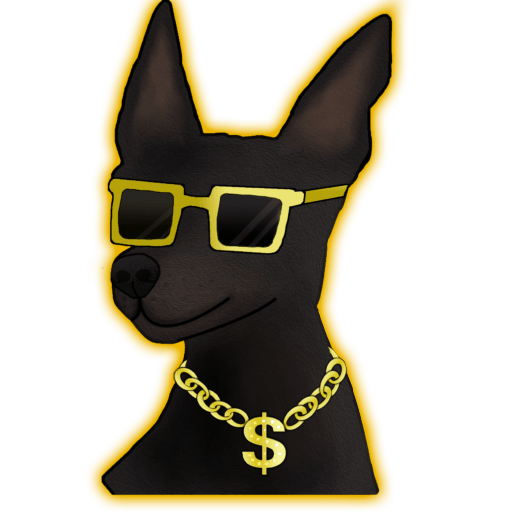
The Corkie is a cross between a cocker spaniel and a Yorkshire terrier.
As such, they can be small to medium-sized. This breed of fur friend is loving, intelligent and energetic. They’re a versatile dog good for families or singles living in houses or apartments.
Because Corkies are a cross, you can expect your pup to have a mixture of both cocker spaniels and Yorkshire terriers tendencies. However, one of those breeds may be more dominant. For example, your pup’s DNA may have more Yorkshire Terrier because of his parents. In this case, you can expect more characteristics from that particular breed.
In this post, we’re providing an overview of what the mixed breed may look like.
Corkie Quick Stats
- Size: Small-medium
- Weight: 8-27 lbs.
- Height: 8-14 inches
- Coat: Med-Long, straight-haired or silky
- Grooming: Regular brushes, occasional trim
- Exercise: Regular walks
- Color: Black/tan, black/brown, black/white
- Lifespan: 11-15 years
- Health: Good, but crossbreeds tend to have more problems
- Hypoallergenic: No
- Temperament: Good
Corkies: An Overview
View this post on Instagram
Got a new place!!! Mom’s taste is whatever but I have a bunch of new space!
Corkies are loving and happy dogs who can have a bit of a territorial side from their Yorkshire Terrier origins. If you know the breeder or adoptive dog parent, ask them if your corkie was bred with a King Charles Spaniel or an American Cocker Spaniel. Since both may be used, knowing which specific spaniel your dog is can give you a few hints about her personality or health. Their color depends on which genes they have, but they can be a combination of black, brown, tan, white, yellow or red.
In terms of exercise and grooming, they’re medium-maintenance. A walk or two a day should keep their energy at bay. They’ll also need to be taken to the groomers occasionally to trim their hair and nails.
Corkies can be generally healthy dogs, although some crossbreeds may have more issues than purebreds. Ask the person you get your dog from if they know about any health problems that run in the dog family. Since every dog is individual, the problems they’re prone to depend on their genetics. Although there’s no guarantees, Corkies can be more prone to eye and skin problems, knee and elbow joint issues, allergies, hypothyroidism and reverse sneezing.
Corkies tend to eat anywhere from 3/4 to 1 1/2 cups of dry food per day. If your dog doesn’t graze, this amount is best split amongst 2 or 3 meals each day.
Since corkies are a cross between two breeds, they’re not a purebred recognized by the American Kennel Club. However, they are recognized by the Designer Breed Registry, American Canine Hybrid Club and Dog Registry of America.
Corkie Grooming
A corkie’s coat varies depending on which genes they inherit. They can be medium or long-haired with straight or a more silky texture. Compared to other breeds, they may shed less, but you should still be prepared for hair around the house.
To keep hair healthy and prevent it from matting, you should aim for a daily brush. If that’s not possible, a brush every few days is needed. Since some corkies can be longer-haired, you’ll also need to take her to the groomers occasionally. This keeps the hair under control and prevents it from growing towards the eyes and other facial areas, making it hard for them to see. It’s a good idea to plan for a grooming appointment before warm months in particular. An overgrowth of hair can keep the heat in instead of letting them cool off. Some corkies may be shorter-haired, meaning that trimming may be needed even less frequently.
You should also bathe your corkie about once a week.
Training a Corkie
As with any dog, a Corkie pup will need to be trained the basic commands and housebroken. Luckily, the job should be fairly easy because this breed loves to please others. Use positive reinforcement by giving treats and tons of praise when she’s understanding correctly. Since they’re generally intelligent, you shouldn’t run into too much trouble or stubbornness.
Corkie Temperament
Corkies are obedient and affectionate. This makes them a great addition to a family with kids or other pets. They’re also a good option for singles or seniors. However, as with every dog, their temperament depends on how they’re trained and socialized as puppies. When your canine is young, make sure she meets plenty of other dogs. A pup who doesn’t learn to socialize can become too shy or have a tendency to snap at strange people or dogs.
Corkie Exercise
Corkies are modestly active dogs that will enjoy a daily walk or run in the dog park. If you have an outside, enclosed space, that’s even better. Although they’re active, they’re small and won’t need as much time outdoors as a large breed. You can set a goal for 30 minutes worth of walks or active play time a day. Since she’s smart, when she’s not active, you can keep her stimulated with toys and puzzles.
Corkie Pros and Cons
To decidee if a corkie is thr right breed for you, take a look at their pros and cons.
Pros
- Loving personality— Corkies can be on the sensitive side and love showing affection to family members.
- Moderate exercise— While corkies require more exercise than small breeds, a walk or two a day should be manageable.
- Appropriate for families— Since these dogs get along easily if they’re socialized, they’re usually a great addition to a family with kids or pets. Seniors will also appreciate their easy-going nature.
- City or country dogs— Corkies are small enough to live in an apartment in the city. However, they’ll also enjoy roaming around in fenced-in areas in the country.
- Hot or cold climates— Since the corkie is an indoor dog, she’ll be okay in just about any climate. Just remember, if it’s a really cold day, you may have to shorten walks or outdoor time.
Cons
- Occasional grooming— While short-haired breeds don’t require any professional grooming, corkies will need a trim every now and then to keep their hair at an appropriate length.
- Health issues— Corkies are generally healthy dogs, but crossbreeds are often prone to more health issues than purebreds. To get a more accurate idea, ask your breeder or adoptive pet parent/shelter.
- Varying characteristics—Since corkies are a combination of two breeds, there’s a wider variety of characteristics you can expect. The list of possibilities is shorter for purebreds.
Should You Get a Corkie?
Before you get a corkie, you should ask yourself the following questions.
- Can you commit?— As with any dog, corkies are a lifetime commitment. If you don’t have the time to walk, feed and train her, you should consider a lower-maintenance pet instead.
- Are you active?— Corkies may vary in their energy levels. Larger corkies may need about two walks a day. Ask yourself if this will fit into your current lifestyle and schedule.
- Can you take the costs?— Along with the costs of food and toys, you should think about what your dog may cost you later down the line. Since Corkies can be prone to different health issues, ask yourself if you can afford the potential vet bills as she gets older.
Where to Get a Corkie
Corkies are a designer dog breed. Unfortunately, many designer crossbreeds come from puppy mills. These are places where dogs are bred and housed in inhumane conditions, resulting in a variety of health and behavioral problems. Buying a corkie from one of these unreputable breeders means supporting abuse.
If you choose to buy from a breeder, follow these tips to ensure you’re selecting a respectable one. A great alternative is to adopt a dog instead. You can check sites like Petfinder.com to see if they’re any Corkies for adoption. Another idea is to contact your local shelters and ask if they can contact you the next time a Corkie is available.
Corkie Lovers
If you’re a corkie lover, check out some of these most adorable corkie finds.
Corkie Mom Shirt
Corkie Cork Bottle Stopper
I Just Care About my Corkie Shirt
I Just Want to Drink Wine and Pet my Corkie
The More People I Meet Mug
Cute Corkies
If you’re wondering what a corkie looks like in action, take a look at some of the cute videos.
Corkie doing a rollover trick
Newborn Corkie puppy playing with toys
Corkie puppy hopping about









